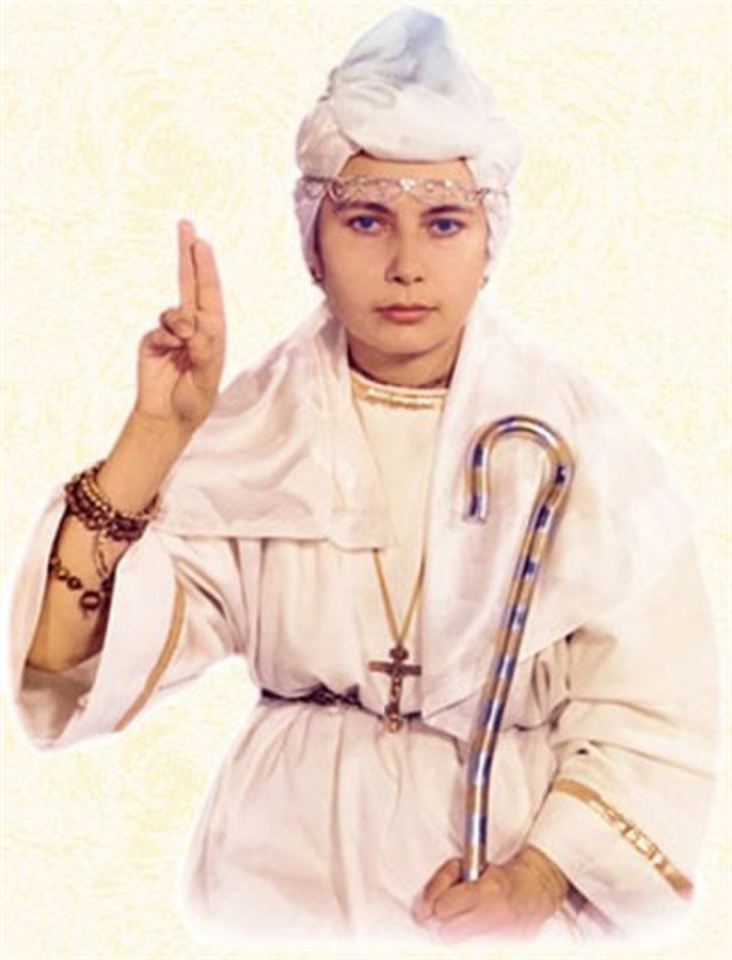Filed Under: Print > Political advertising > Maria Devi Khristos
Maria Devi Khristos

Maria Devi Khristos (b. Marina Tsvigun) and Yuri Krivonogii were the leaders of the influential and seemingly omnipresent early 1990s cult called the Great White Brotherhood of YUSMALOS. Tsvigun and Krivonogii founded the cult between 1990 and 1991 in Kyiv, rapidly spreading its message throughout the post-Soviet world via ubiquitous posters and handouts. The cult’s literature declared Marina Tsvigun a god—specifically, a reincarnation of Christ. It combined elements of theosophy—the “White Brotherhood” being a term deriving from the teachings of occultist Madame (Helena) Blavatsky (1831-1891)—and New-Age astrology, YUSMALOS being an acronym for Jupiter (yupiter in Russian), Saturn, Mars, Moon (luna), Orion, and Sirius. The movement was very popular, with fliers featuring Marina Tsvigun in her persona as the reincarnation of Christ appearing in virtually every major city in the post-Soviet world. Even as it prompted numerous parodies, the cult found a ready audience among post-Soviet subjects curious to drink spiritual wisdom from the opulent font of New-Age cults.
By 1991, the group’s influence had spread sufficiently that the Ukrainian Orthodox Church declared Maria Devi Christos herself to be anathema, casting out her believers (who still nominally considered themselves Christians) as heretics. Soon after, criminal prosecution of YUSMALOS began in earnest on the part of the secular authorities. On 10 November 1993, the cult sealed its own fate by attempting to forcibly seize Kyiv’s historic Saint Sophia Cathedral for themselves. It is not clear what they expected to happen, but the raid was a disaster for the cult, with members stopped by the police. Both Tsvigun and Krivonogii were arrested and were sentenced to four and six years in prison, respectively. Despite her shorter term, Tsvigun denounced Krivonogii as a Judas already during the much-publicized trial. She went right back to running the cult after completing her sentence, reforming it in 1997, unsuccessfully petitioning the Ukrainian government for recognition, and eventually setting up headquarters in Moscow instead. The cult is still very active today, both in Moscow and online. Krivonogii, for his part, denounced Tsvigun’s divinity after leaving prison in 2000.
The rise and fall of YUSMALOS exemplified the proliferation of cults and eclectic New-Age ideologies in the 1990s, and their continuation and even usurpation by official ideology well into the 2000s. An example of the latter phenomenon is former spy Anna Chapman’s long-running conspiratorial New-Age TV series, Secrets of the World with Anna Chapman (2011-2014) and Anna Chapman’s Secrets (2015-present).